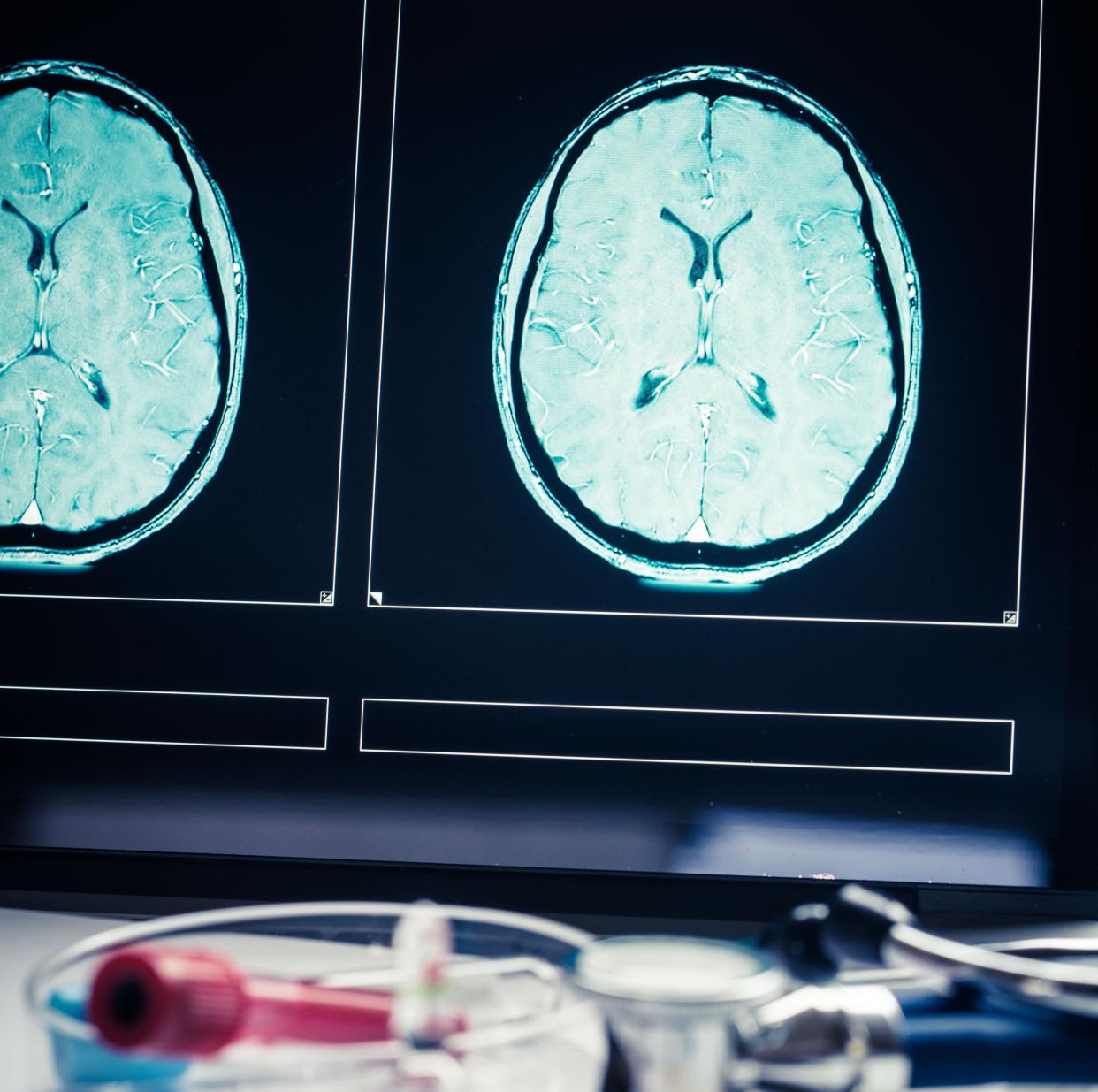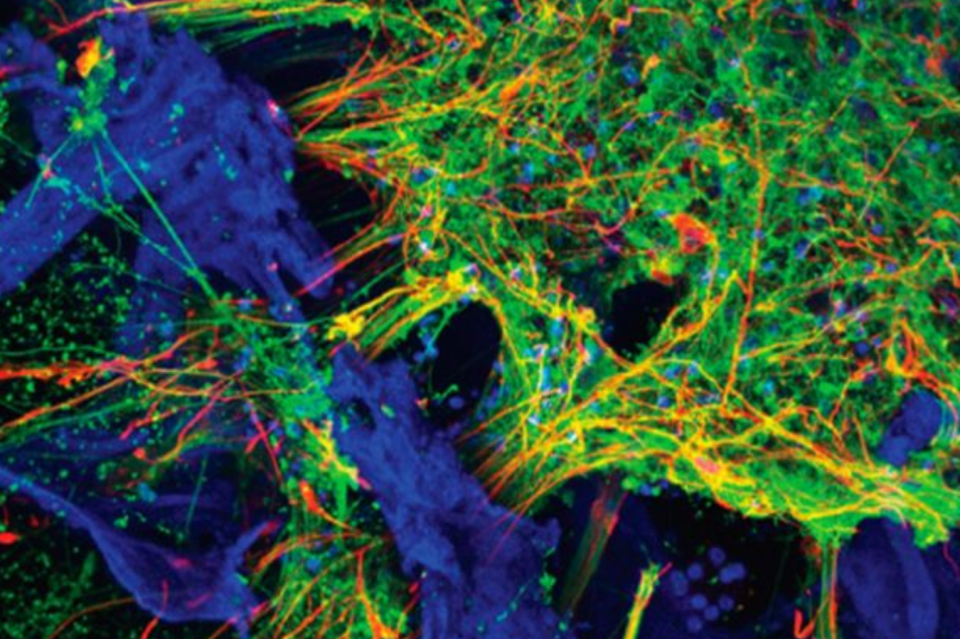Scientists take step towards growing human brains in the laboratory

Researchers have created a 3D tissue model of the human brain in the laboratory – and the living brain cells could offer a new understanding of brain diseases.
Researchers grew the cells on a three-dimensional scaffold made of silk protein and collagen, allowing researchers to create ‘brain-like organoids’.
The researchers believe that the networks built of human induced pluripotent stem cells or iPSCs could offer new insights into conditions such as Alzheimer’s and Parkinson’s.

Researcher David Kaplan said, ‘We found the right conditions to get the iPSCs to differentiate into a number of different neural subtypes, as well as astrocytes that support the growing neural networks.
READ MORE FROM YAHOO NEWS UK:
Couple in car that towed caravan the wrong way down a busy motorway are named
Student died after ‘taking part in bar crawl initiation involving 100 triple vodkas and pig’s head’
Man admits murdering midwife Samantha Eastwood after affair
Proposed EU ban on daylight saving time could cause clock chaos in no-deal Brexit, warn peers
Theresa May insists Brexit is 95% done as rebel MPs plot revolt
Study author William Cantley said, ‘The growth of neural networks is sustained and very consistent in the 3D tissue models, whether we use cells from healthy individuals or cells from patients with Alzheimer’s or Parkinson’s disease.
‘That gives us a reliable platform to study different disease conditions and the ability to observe what happens to the cells over the long term.’


